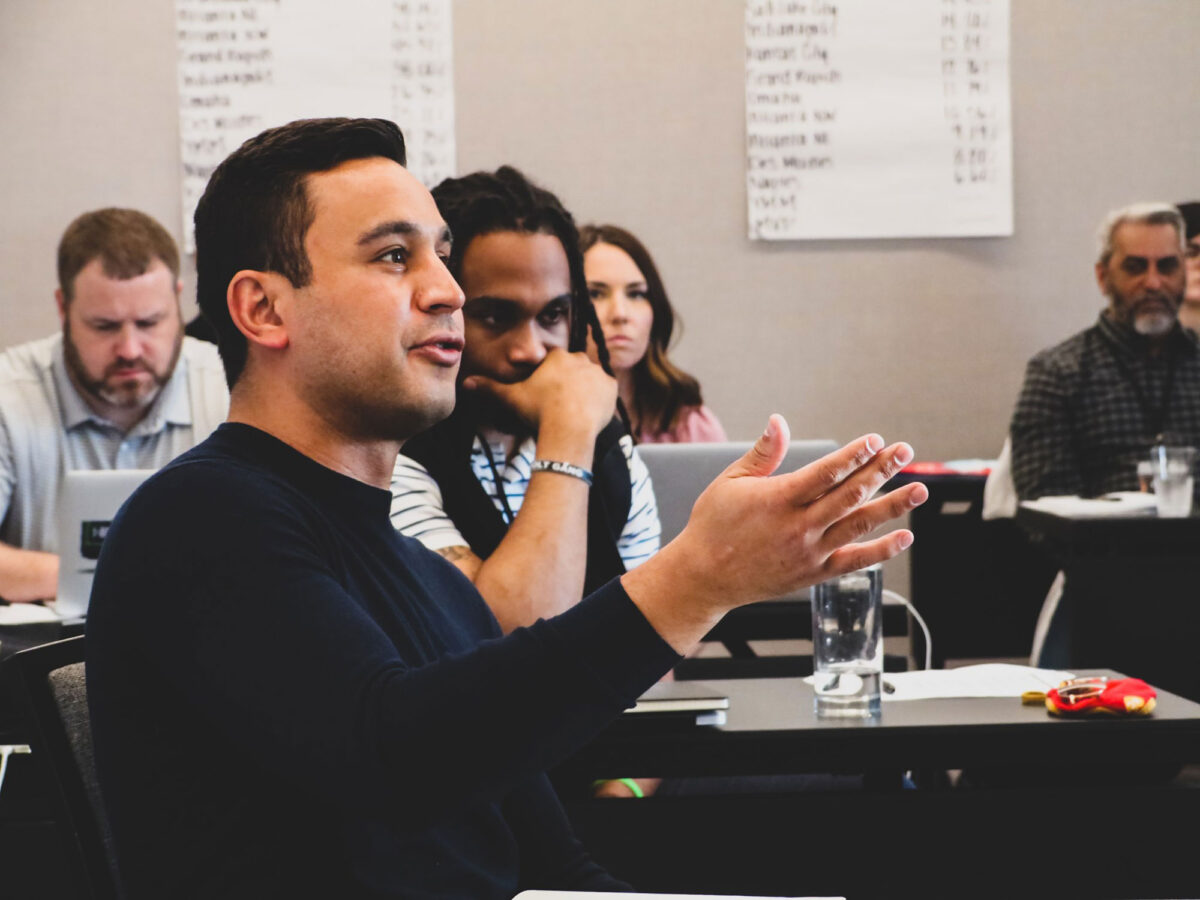Why Engagement is the Antidote to the Great Resignation

By: Josh Herron, You Move Me CEO
You’ve read the headlines: the Great Resignation is what the mainstream media is calling the human response to poor leadership and culture. Businesses have been able to maintain decent retention numbers for years through employees’ worry that the “grass may not be greener”. Those days are long gone, causing employees to quit their jobs at a rapid pace. I am not going to write about why this is happening- I want to help business owners and executives across North America stop this vicious cycle that is creating terrible customer experiences and creating anguish for consumers and leaders.
Southwind is a collection of home services companies that employ over 800 people across the United States. Most of our frontline staff are hourly workers who are some of the best people I have ever met. Our people are hungry, hardworking, and hands on. Our businesses are known for their exceptional employment and customer experience. Over the past two years, especially during the pandemic, our retention has increased significantly- while most others in our industry have declined significantly. Along with our increased retention, our revenue has increased from 36 million in 2019 to a projected 123 million this year (2022). Over the past year, I’ve been asked to speak on this topic by several leaders and what we have found is there is one main key component to our success during these times: engagement.
Engagement:
Engagement is the cornerstone of our organization. How you make people feel is vital to their ability to perform on a daily basis. At Southwind, engagement begins with gaining an understanding of what is important to your teammates. We help our teammates set personal and professional goals, which we review monthly to ensure they are moving forward in their lives. Our feeling is that people generally become disengaged when they are stagnant. People are normally stagnant when there is no clear vision for their future. Help create a path for your teammates by assisting them in goal setting. A leader’s job is not just to run the company or department, it’s also to help his/her team move forward and help their people get what they want in their lives.
Nudges, Collisions, and Intentional Engagement:
People need help to become successful. We have spent many hours discussing the importance of nudges. At Southwind, we define a nudge as a subtle reminder that helps people stay on task or re-energize to help them accomplish their goals. Life can be challenging and sometimes work can be overwhelming. We all need help remembering important things, not because we don’t care, but because life throws obstacles at us and we have to balance several things at once- making important things occasionally fall through the cracks. A leader has to be the spotter for their people. Great leaders help their people recognize their blind spots so that they can have a higher chance of becoming successful. Nudge your team regularly when you see them steering off course. As leaders, we play a major role in the success of our people. It’s important to recognize that and take it very seriously.
Collisions are short impromptu meetings that happen virtually or in person. These meetings generally are not scheduled and are necessary for keeping performance high. As you walk through the halls of your office identify people who are hanging their heads and use a collision to redirect them and make them feel better. Maybe they just need to hear some kind words. Maybe they need to vent about a situation or are struggling with a challenge that you can help them with; use a collision to connect and not miss an opportunity to be impactful in your teammate’s life. Use collisions when you have heard great things about a teammate. If someone has told you positive feedback about one of your teammates, take the time to seek that person out and have a collision with them. Tell them in front of everyone about the great feedback you heard and how proud you are of the work they are doing. This will create a sense of ownership of the work from the teammates and a sense of pride. Having positive collisions with teammates in groups will also create a deep urge inside the people who saw you give their teammate an affirmation. They will then attempt to show the same behavior in hopes that they receive the same affirmation from you.
Be intentional with your engagement. The most important tip of all encapsulates everything I have written about and is most likely the single greatest reason for our success. Engagement Intentionality. The engagement has to be something you plan for and it can’t just happen sometimes or when you achieve a milestone or have a challenge. Intentional engagement must be an everyday practice by the leaders in your company.
Here are a few things to ask yourself daily:
- Who am I going to do a one-on-one with today?
- What time is our daily huddle and what is the topic?
- Who needs an affirmation from the day before?
- Who had a tough day yesterday that I need to speak to?
- Who can I speak with today that has plateaued in their career?
- Who is knocking it out of the park and needs congratulations?
Make it your number one job to know your teammate’s name and do your best to understand what a win looks like for them personally and professionally. The practices above are actually challenging to execute, mainly because most middle managers are thinking about themselves first and their team second. If you put your team first they will deliver exceptional results and your success will be a byproduct of their incredible work.

